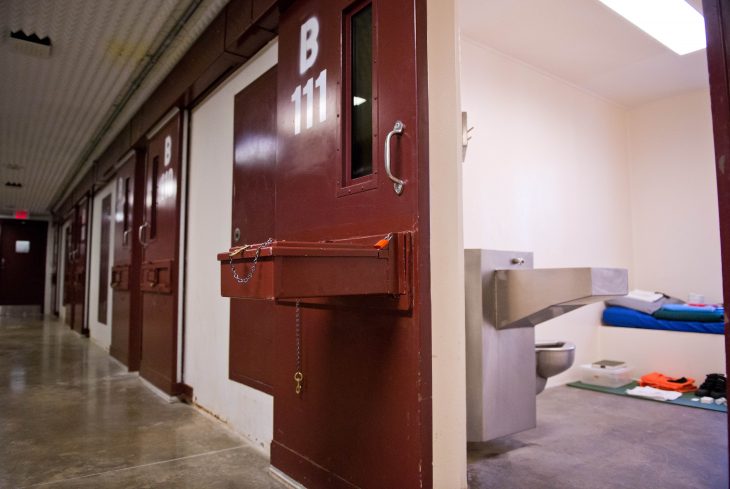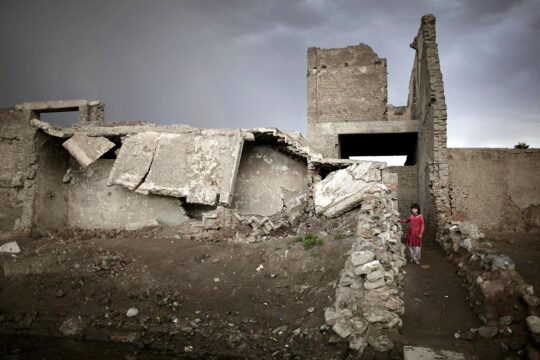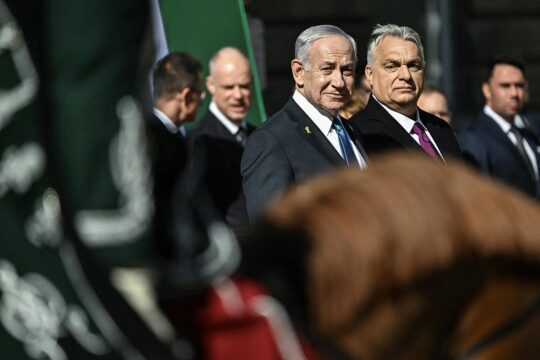A human rights NGO has called on the International Criminal Court (ICC) to extend its likely investigations on Afghanistan to crimes committed at Guantanamo.
On November 20, 2017, ICC Prosecutor Fatou Bensouda asked the court’s judges for authorisation to open an investigation into crimes committed by US forces and the CIA in Afghanistan and Europe, as well as by the Taliban and the Afghan regime. The victims had until January 31, 2018 to support or reject this request. Their opinions should allow the judges to decide whether or not it is in victims’ interest to open an investigation.
Several victims imprisoned in secret CIA prisons have sent opinions to the Court via human rights organizations including the Center for Constitutional Rights (CCR), which has asked the judges to include the secret CIA prisons and “the ongoing crimes at Guantanamo”. The US-based organization also asks the judges to consider not only “crimes committed by military and civilian leaders” but also private security companies. “Guantanamo is part of this policy” of torture, put in place under George W. Bush, explained CCR lawyer Katherine Gallagher in a telephone interview. “Guantanamo shows the systematic aspect of this policy.” She says that although neither Cuba, on whose soil the American prison is based, nor the US itself have ratified the ICC treaty – meaning that the ICC has no jurisdiction over crimes committed there --, Guantanamo is part of the context.
The two victims represented by the CCR are currently being held in Guantanamo. Sharqawi Al Hajj from Yemen was arrested in Pakistan in 2002, then transferred to a secret prison in Jordan, where he was allegedly interrogated and beaten regularly for nearly two years. He was subsequently transferred to a CIA prison in Kabul, jailed in the dark and submitted to loud music, then placed in isolation for two and a half months at the Bagram base, where he was allegedly beaten. In 2004, he was transferred to Guantanamo, where he has since been held without charge. The CCR is also representing Guled Hassan Duran from Somalia, who was arrested in 2004 in Djibouti and sent to Guantanamo in 2006. In the two years following his arrest – on the territory of an ICC member State, according to the lawyer – he was detained at several sites including in Afghanistan. “The ICC needs to look at what happened to the men who are now in Guantanamo,” says Gallagher. “This is the result of the torture policy of the CIA. To understand the totality of what happened to these men, they have to understand Guantanamo.”
Secret prisons
The issue of secret CIA prisons in Europe remains the main unknown in this case. In her November 20 request, the Prosecutor asked for authorisation to investigate alleged crimes committed by the Taliban, the Afghan regime, US forces and the CIA. She cites torture, cruel treatment, rape, sexual violence and attacks on dignity committed by the American army and the CIA in Bagram prison, southeast Afghanistan, in 2003 and 2004. But with regard to the responsibilities of the US intelligence agency, Fatou Bensouda also adds crimes committed in the context of the war in Afghanistan, i.e. in secret prisons in Poland, Lithuania and Latvia where, after being taken on Afghan soil, persons suspected of being Taliban or Al-Qaeda members were interrogated and tortured. “It is important that the Court allows the Prosecutor to investigate the sites in Poland, Latvia and Lithuania, if only for what being an ICC State Party means,” she says -- in other words, respect of international law.
But for years these three countries have been hiding behind State secrecy to justify the absence of prosecutions there. The ICC is a court of last resort which can only intervene if there are no serious efforts to prosecute by the country concerned. The Prosecutor currently says that procedures are under way in the three European States but she could – if the judges authorize it – intervene if they go nowhere. For the moment there is nothing to tell whether pressure from the Court will incite these States to at least produce a semblance of serious procedures.
Involvement of international forces
In her request, the Prosecutor evoked the possibility that crimes may have been committed by special forces of international troops in Afghanistan. Fatou Bensouda said there were indications that in certain cases, international forces did not target civilians directly but that, as in other cases, she was not able at this stage to draw make a conclusive assessment. Fifteen days later, the judges asked her to provide all information on this point.
Since the Prosecutor’s announcement at the end of 2016 and the prospect of an ICC investigation on Afghanistan, Kabul has revised its penal code to include crimes of genocide, crimes against humanity and war crimes, and had the Statute of Rome translated into Dari and Pashto. The Afghan government seems to want to show that prosecutions are under way and that the Court’s intervention is therefore unnecessary. According to minister in charge of relations with the ICC Nader Nadery, quoted by independent Kabul-based research group Afghanistan Analysts Network (AAN), the Afghan Head of State told Bensouda in a September 2017 meeting on the sidelines of the UN General Assembly in New York that he was “morally” but not judicially on the ICC’s side because the Court’s intervention could harm the peace process and affect the presence of international troops in the country, which would not be in the “interests of justice” or of victims.
US opposition
Since last autumn, Washington has taken advantage of several forums – notably the UN – to oppose the opening of such an investigation. At the December 2017 ICC Assembly of States Parties in New York, the US delegation rejected any ICC jurisdiction over American citizens. In a long speech worthy of Sudan’s against the Court, the Americans recalled that a Treaty is based on consent and that they did not consent to the Treaty of Rome. US opposition to the ICC, even before its creation in 1998, has taken active forms in the last 20 years. Not only does Washington not want its citizens to be targeted by international justice but it also rejects the Court’s right to evaluate US judicial procedure, deemed to be “one of the best in the world”. The ICC Prosecutor already stressed in her request that there have been no serious investigations by American courts. An irony of history, also raised by the Americans, is that it was on the basis of numerous reports in the US, including a Senate report declassified in 2014, that the ICC Prosecutor was able to advance in her analysis.
Addressing the 123 ICC States Parties, Washington added that the US does not think opening an investigation will “serve the interests of peace and justice in Afghanistan”. But since the US intervened in Afghanistan in 2002 in the name of fighting terrorism, US expertise on this point has not been conclusive. Donald Trump said in his State of the Union address on January 30 that he had signed an executive order to keep Guantanamo open. "I am asking Congress to ensure that in the fight against ISIS and Al-Qaeda we continue to have all necessary power to detain terrorists wherever we chase them down, wherever we find them,” he declared. “And in many cases for them it will now be Guantanamo Bay." Forty-one people are still detained there.






